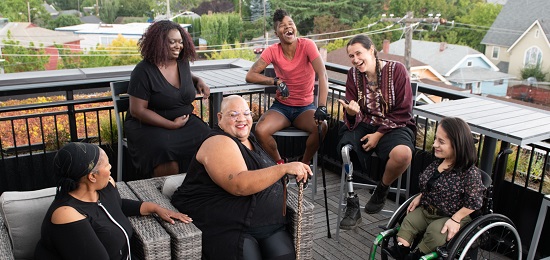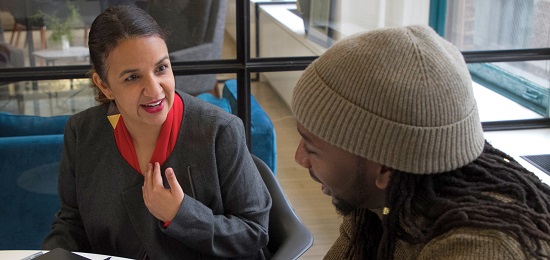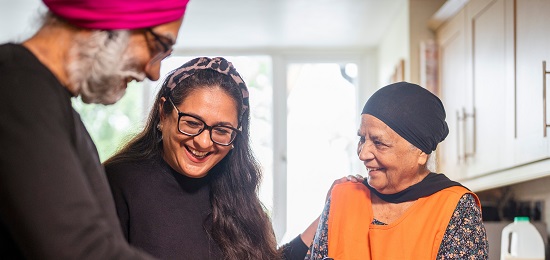Dispute Resolution
FAQ
What is a mediation?
Mediation is an opportunity for the parties to participate in a confidential process facilitated by a neutral third party to help resolve their conflict. In the mediation process, parties enjoy control and confidentiality, while having the opportunity to explore creative solutions to civil rights complaints. Parties who settle a case in mediation can efficiently reach solutions for the concerns that first brought them to Civil Rights Department (CRD), often avoiding the difficulty and expense of further investigation, litigation, and conflict.
In mediation, the parties to a dispute are empowered to retain control over the outcome of the conflict. Unlike in court processes, the mediator does not decide the dispute or impose a settlement on the parties. The mediator does not represent either party, has no authority to impose a settlement, and simply assists the parties in coming to an agreement.
Mediations are confidential. Our staff of professional neutrals at the Dispute Resolution Division (DRD) do not have access to most case files and information that parties provide to other CRD staff during an investigation. Because of this, parties will need to share information with the mediator that they may have already shared with other CRD employees in the Enforcement or Legal Divisions. In the same way, CRD employees in the Enforcement or Legal Divisions do not have access to information shared by parties with our mediators. This is done to protect the confidentiality of the process and to maximize opportunities for a settlement outside of the legal or investigative process.
Why would I consider mediation for my case?
There are a number of reasons why mediation may be an appropriate avenue for resolving a civil rights complaint. For instance:
- Mediation is generally much faster than going to court, which can take years to reach an outcome.
- Parties have control to resolve their case usually in a one-day mediation session, which can allow them to move forward from a complaint by as soon as the next day.
- Parties can explore resolutions that better meet their needs and interests that may not be available in court.
- As CRD mediation is free, parties with limited resources do not have to worry about the cost and do not need to hire an attorney to reach a resolution. Our mediators are trained to work with unrepresented parties so that everyone can reach a resolution that works for them, even if they do not have a lawyer.
- There is no harm to a party’s position if they try mediation and it doesn’t work out. They can just move on in the CRD process or to court as if mediation did not happen.
- While in mediation, complaint deadlines are paused (or tolled). This ensures time spent in mediation doesn’t affect CRD’s ability to investigate if mediation is not successful.
- Parties have the flexibility to participate in mediation by videoconferencing, telephone, or in person.
- CRD retains authority to enforce compliance for mediated settlement agreements, ensuring parties are protected if a breach of agreement occurs.
Who are the mediators?
CRD employs a staff of experienced neutrals whose exclusive role at CRD is to mediate complaints through DRD. DRD’s mediators do not participate in investigations or prosecutions. They have no stake in the outcome of a case. They have no access to case files and do not disclose any information they learn during mediation to the Enforcement or Legal Divisions. Most DRD mediators are attorneys with litigation experience, and some are former administrative law judges or arbitrators. All have undergone extensive mediation training, and some are trainers themselves. You can learn more about our mediators here.
Who can mediate complaints at DRD?
In matters where CRD has investigated and intends to prosecute in court, CRD is required in most cases to offer mediation. In all other instances, mediation is voluntary. An investigator may ask the parties if they wish to be referred to mediation, and parties may also request mediation at DRDOnlinerequests@calcivilrights.ca.gov.
If my case is referred to mediation, when will I hear from DRD?
For voluntary mediations, if all parties agree to mediation and the Enforcement Division deems it appropriate, the Enforcement Division will refer the case to DRD. If DRD can accept the referral, a party or a party’s representative should receive an e-mail from DRD within approximately 10 business days.
Should I hire an attorney?
Parties may retain legal representation for mediation but are not required to do so. DRD mediators are familiar with the laws CRD enforces, and many parties who participate in mediation are not represented by attorneys.
When will my mediation occur?
Generally, mediations are scheduled two to five weeks after the assigned mediator contacts the parties, depending on the availability of the mediator, the parties, and any representatives. The mediator will work with the parties and any representatives to find a mutually agreeable date. If a mediator is unable to schedule the mediation, perhaps because the parties cannot agree to a mediation date, DRD may choose to close the matter instead of proceeding with the matter.
What is the format of the mediation?
The mediator considers the needs and preferences of the parties and any representatives in setting the format of the mediation. Generally, most mediations are held over Zoom or Microsoft Teams. The mediator will send out a link or invitation to the meeting. However, if a party wishes to hold the mediation over telephone, the mediator will most likely be able to grant the request. If a party wishes to attend an in-person mediation, they should also ask their mediator. DRD may be able to hold mediations in person if the parties are able to meet at a CRD office or other agreed-upon location.
On the day of the mediation, mediators may keep the parties in separate rooms (physical or virtual) to facilitate a resolution. If the parties agree, there may be an opportunity to be in the same room together if the mediator thinks it would facilitate a resolution. The mediator will meet with the various parties, share appropriate information, and work to develop a creative resolution.
Do I have to be the same physical room, virtual room, or phone call as the other party?
If any party or representative has concerns about being in the same physical room, virtual room (such as over Zoom or Teams), or phone call as another party, they should discuss their concern with their mediator. The mediator will be able to advise whether it’s possible to keep the parties in separate physical or virtual rooms, or on separate telephone calls.
Will the mediator have access to all the documents and information I already provided the investigator?
No. DRD mediators have no access to CRD investigative files other than the complaint. All information mediators learn about a case comes from the mediation participants themselves.
What information do I need to bring to mediation?
Mediation participants should know the facts related to their complaint. You will have an opportunity to provide the mediator whatever information you feel is relevant to resolving the mediation session. You do not have to share documents with the opposing party at mediation.
Can I tell my mediator something that I don’t want them to share with the other party?
If you have information that you don’t want shared with any other party, please inform your mediator prior to sharing the information. However, sharing information can often be the key to finding a resolution and is strongly encouraged.
What if I don’t like the settlement that is proposed?
DRD mediators do not have the authority to require parties to agree to a settlement they do not like or want. If you do not like a settlement proposal, you may reject it and make a counteroffer or decline to further participate in the mediation.
If a respondent agrees to a settlement, does that mean the respondent has done something wrong?
Not necessarily. Most DRD settlements are no-fault settlements. This means that the parties have agreed to resolve the dispute without a finding that any party has necessarily done anything wrong.
What happens if your case goes to DRD and is not settled?
Matters that do not settle at DRD are usually sent back to the investigation unit for further processing, with certain exceptions.
What happens if your case goes to DRD and does settle?
If parties come to an agreement, the matter is resolved and DRD will provide a settlement agreement. The agreement will be limited to claims that arise under the statutes for which CRD has jurisdiction and that are based on or related to the allegations in the underlying complaint filed with CRD.
DRD agreements are governed by California law and public policy, CRD’s statutory and regulatory framework, and CRD’s workshare agreements. Some of these requirements include:
- All DRD settlement agreements must contain a promise that the respondent or respondents will provide some form of affirmative relief; in other words, a commitment other than a monetary payment to take steps that undo or counteract discrimination. Examples of this could be an agreement to conduct training or revise policies so they are compliant with California law.
- In general, DRD settlement agreements cannot be made confidential. However, a complainant may choose to keep their name confidential (unless a government agency or public official is a party to the agreement).
- All DRD settlement agreements must be signed by the parties and a representative of CRD.
What happens to the deadlines in my case while the case is in mediation?
The deadlines for civil rights complaints are paused (or tolled) during a mandatory or voluntary mediation with DRD. If mediation is unsuccessful, the CRD investigator or lawyer assigned to the case can provide information to the parties about new deadlines.
How many times can a case be sent to mediation for possible resolution?
If mediation initially is declined or is unsuccessful, the matter may be referred for voluntary mediation again if the parties agree to mediation and DRD has capacity to mediate the matter. If CRD intends to prosecute a case in court, CRD is required in most cases to offer mediation.









